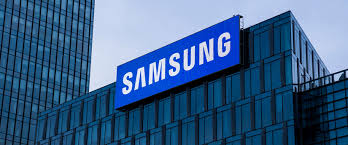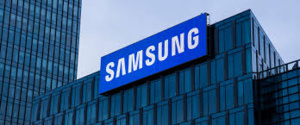Samsung Electronics Co Ltd said on Thursday that it expects strong demand for high-margin memory chips in data centres to continue in the second half, but that component shortages would likely persist.
According to the world's leading memory chip and smartphone manufacturer, underlying server chip demand remains "pretty stable" as companies raise investments and look to new technologies to grow their business.
"Companies are now expanding IT infrastructure, and cloud companies are expanding investments to explore new growth areas like artificial intelligence and machine learning," said Han Jin-man, executive vice president of Samsung's memory chip business during an earnings call.
"However, there are still some parts supply issues, which could lead to disruptions. We're going to monitor demand fluctuations very closely and intend to provide supply that fits the demand," he said.
Samsung expects lower demand for mobile phone and personal computer chips in the second quarter as consumers deal with issues such as rising inflation and COVID-19 lockdowns, but corporate PC demand is expected to remain strong, and more 5G-capable phone rollouts in the second half could boost mobile demand.
On Wednesday, SK Hynix, a competitor in memory chips, provided a similar prognosis.
Analysts believe that Samsung's recent emphasis on selling more high-margin memory products in order to prioritise profitability over volume will ultimately limit shipments and help boost DRAM prices later this year, as will limited increases in chip production capacity due to delivery delays in chipmaking equipment.
Samsung stated its order book for the next five years in the semiconductor contract manufacturing industry, which includes Qualcomm and Nvidia as clients, was eight times its revenue for 2021.
It intends to win more high-profile customers for chip fabrication in industries other than mobile phones, such as high-performance computing, network equipment, and the automobile industry.
Despite component shortages, Samsung forecasted sustained growth in the smartphone industry in the second half, and predicted that the foldable phone market will double in size from the previous year.
In accordance with its prior prediction, the South Korean conglomerate reported a 51 per cent increase in operational profit to 14.1 trillion won ($11.1 billion) for the quarter ended March 31. It was the largest first-quarter profit for the corporation since 2018.
Nonetheless, Samsung shares fell 0.6 per cent on Thursday, compared to a 0.7 per cent advance in the broader market, extending a year-to-date loss of 17 per cent.
"Samsung's stock price is a market issue, rather than an issue arising from the company," said Park Sung-soon, analyst at Cape Investment & Securities.
"In the past, when the memory chip industry was very cyclical, there was high visibility in demand, so investment was attractively predictable. But now there are all these macro issues and low demand visibility."
Profits at its chip division increased to 8.45 trillion won, more than doubling from 3.36 trillion won a year earlier, thanks to record server chip sales in the quarter.
Profits in the mobile and network industry were 3.8 trillion won in the first quarter, a 13 per cent decrease from the previous year. According to Canalys analyst Sanyam Chaurasia, sales were boosted by increased production of the mid-to-low-end Galaxy A series and the arrival of Samsung's top Galaxy S22 series.
Overall revenue increased 1 per cent to a record 77.8 trillion won.
(Source:www.usnews.com)
According to the world's leading memory chip and smartphone manufacturer, underlying server chip demand remains "pretty stable" as companies raise investments and look to new technologies to grow their business.
"Companies are now expanding IT infrastructure, and cloud companies are expanding investments to explore new growth areas like artificial intelligence and machine learning," said Han Jin-man, executive vice president of Samsung's memory chip business during an earnings call.
"However, there are still some parts supply issues, which could lead to disruptions. We're going to monitor demand fluctuations very closely and intend to provide supply that fits the demand," he said.
Samsung expects lower demand for mobile phone and personal computer chips in the second quarter as consumers deal with issues such as rising inflation and COVID-19 lockdowns, but corporate PC demand is expected to remain strong, and more 5G-capable phone rollouts in the second half could boost mobile demand.
On Wednesday, SK Hynix, a competitor in memory chips, provided a similar prognosis.
Analysts believe that Samsung's recent emphasis on selling more high-margin memory products in order to prioritise profitability over volume will ultimately limit shipments and help boost DRAM prices later this year, as will limited increases in chip production capacity due to delivery delays in chipmaking equipment.
Samsung stated its order book for the next five years in the semiconductor contract manufacturing industry, which includes Qualcomm and Nvidia as clients, was eight times its revenue for 2021.
It intends to win more high-profile customers for chip fabrication in industries other than mobile phones, such as high-performance computing, network equipment, and the automobile industry.
Despite component shortages, Samsung forecasted sustained growth in the smartphone industry in the second half, and predicted that the foldable phone market will double in size from the previous year.
In accordance with its prior prediction, the South Korean conglomerate reported a 51 per cent increase in operational profit to 14.1 trillion won ($11.1 billion) for the quarter ended March 31. It was the largest first-quarter profit for the corporation since 2018.
Nonetheless, Samsung shares fell 0.6 per cent on Thursday, compared to a 0.7 per cent advance in the broader market, extending a year-to-date loss of 17 per cent.
"Samsung's stock price is a market issue, rather than an issue arising from the company," said Park Sung-soon, analyst at Cape Investment & Securities.
"In the past, when the memory chip industry was very cyclical, there was high visibility in demand, so investment was attractively predictable. But now there are all these macro issues and low demand visibility."
Profits at its chip division increased to 8.45 trillion won, more than doubling from 3.36 trillion won a year earlier, thanks to record server chip sales in the quarter.
Profits in the mobile and network industry were 3.8 trillion won in the first quarter, a 13 per cent decrease from the previous year. According to Canalys analyst Sanyam Chaurasia, sales were boosted by increased production of the mid-to-low-end Galaxy A series and the arrival of Samsung's top Galaxy S22 series.
Overall revenue increased 1 per cent to a record 77.8 trillion won.
(Source:www.usnews.com)






